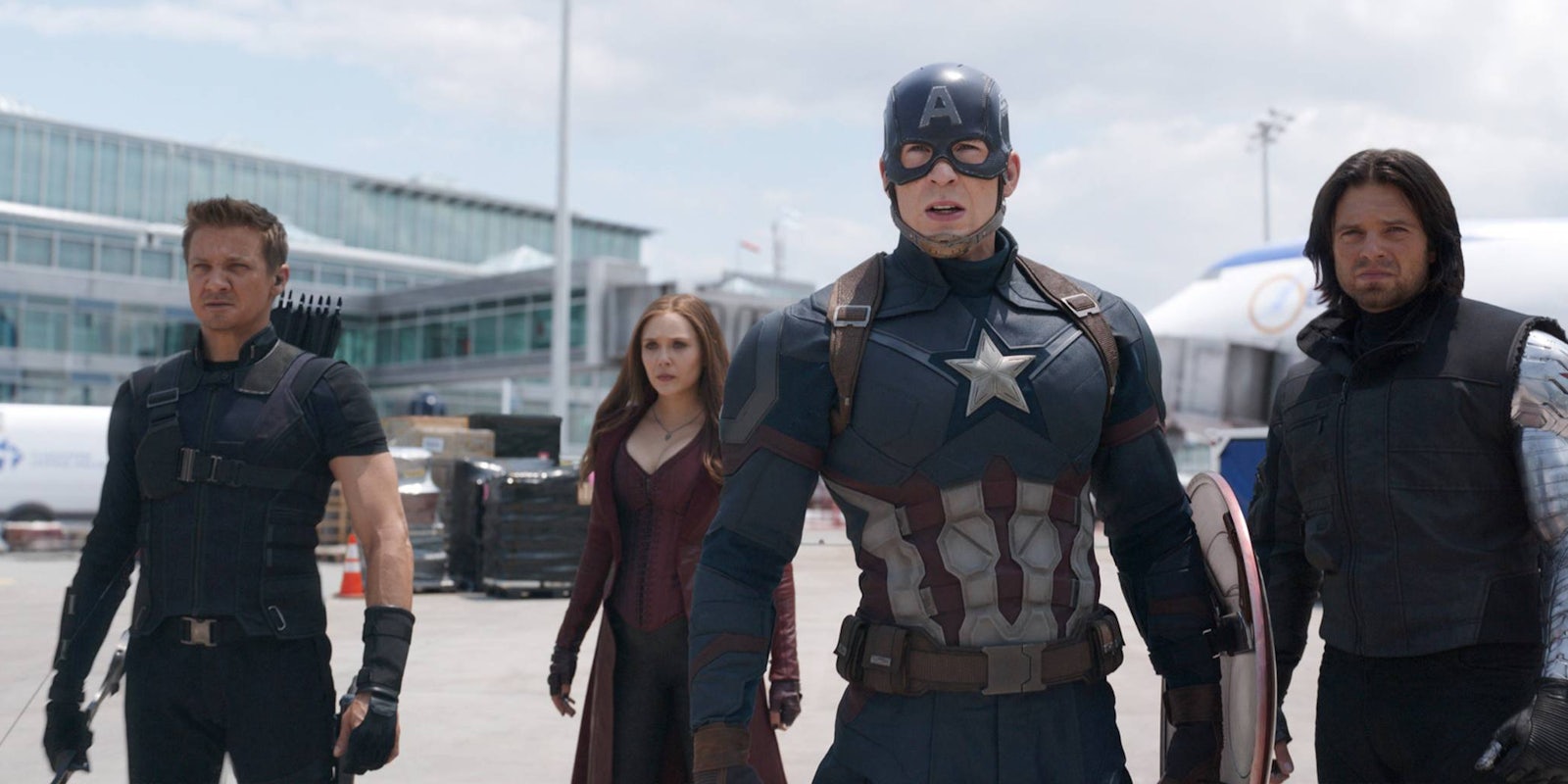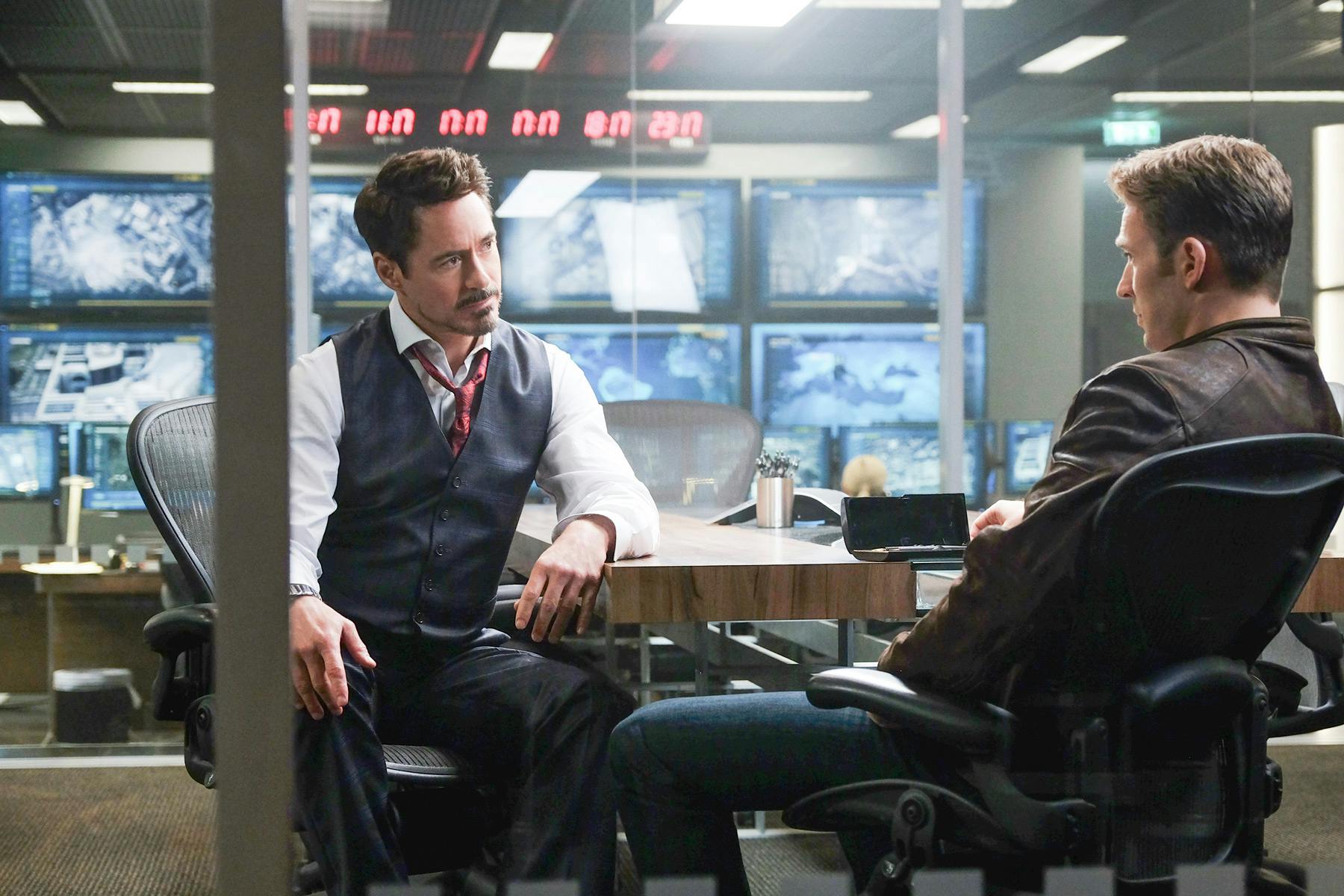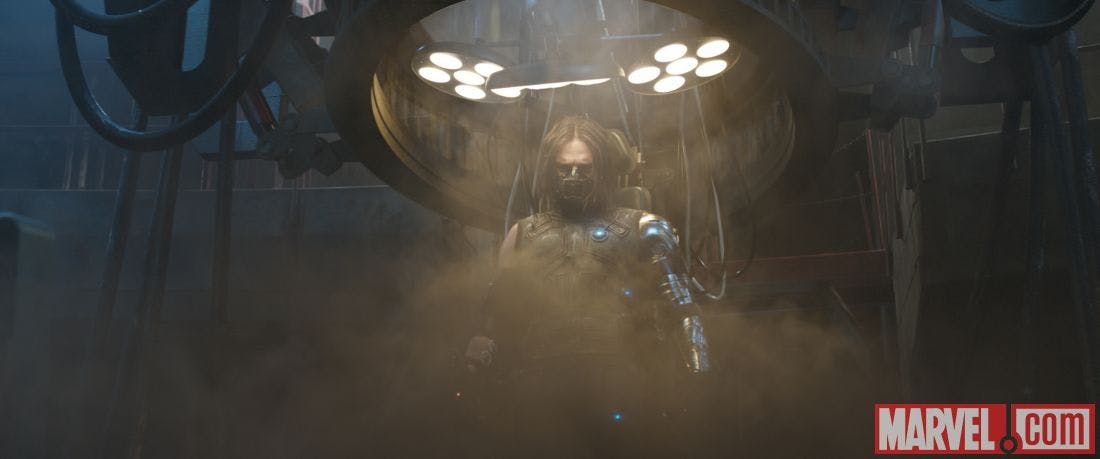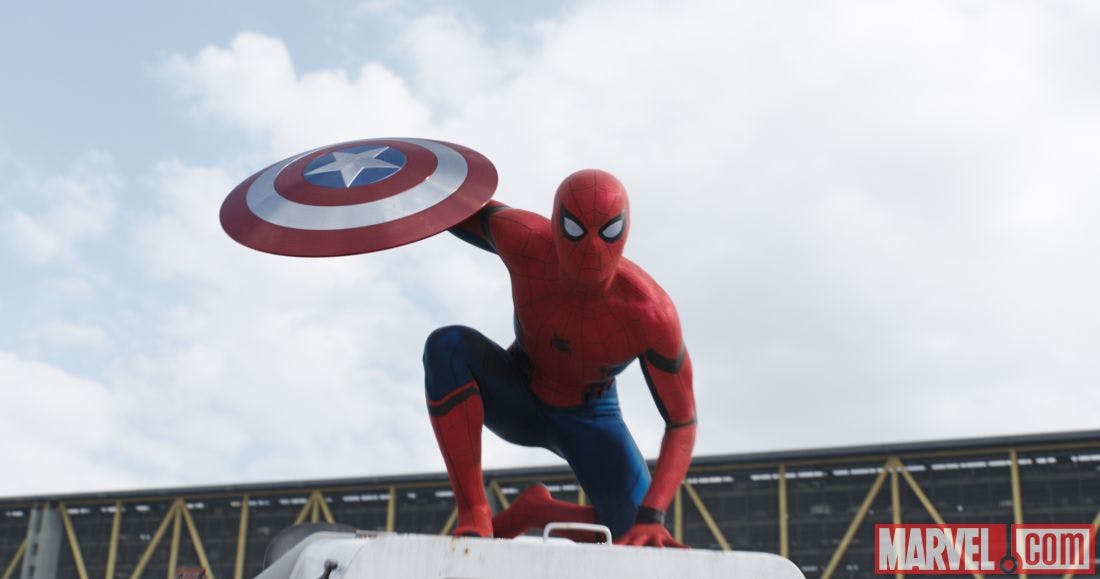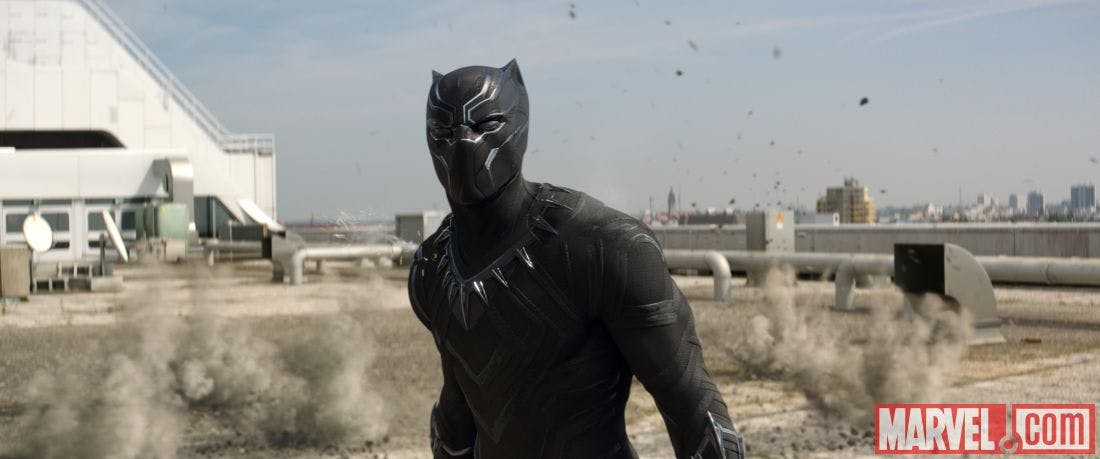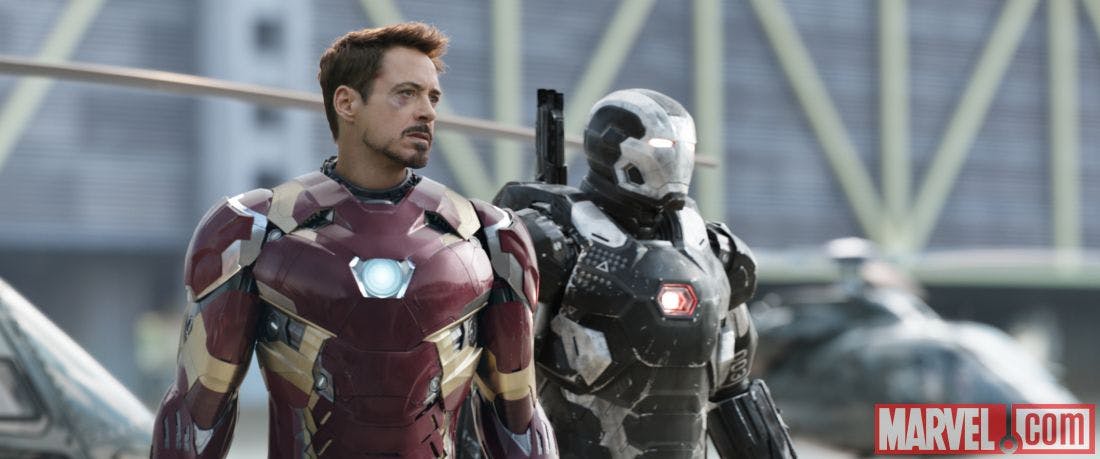This review contains no major spoilers for Captain America: Civil War.
For Captain America: Civil War, Marvel dispensed with one of the most persistent stumbling blocks in the superhero genre: the need for a supervillain. Instead, Captain America (Chris Evans) and Iron Man (Robert Downey Jr.) lead opposing teams in a struggle that zooms out from personal disputes to international politics, a far more thoughtful conflict than the manufactured rock’em-sock’em showdown of Batman v Superman.
The Avengers have spent the past few years wreaking destruction (albeit in the name of saving the world) across the planet, and Civil War is the point where civilian governments decide to rein them in. Loosely based on the Superhero Registration Act of the comics, the Avengers are presented with the Sokovia Accords, an international agreement forcing them to either submit to U.N. oversight or become outlaws.
Weighed down by a desire to do the right thing after Age of Ultron, Tony Stark signs up at once. Steve Rogers, who has ample experience with government corruption and mismanagement, does not. More importantly, he needs to track down his amnesiac best friend, Bucky Barnes, before Bucky is arrested or shot by the authorities—a motivation that trumps Cap’s usual dedication to duty.
This rivalry sets up the most complex Marvel movie to date, juggling a cast that draws from six different franchises. Thankfully, each character has a clear motivation to choose sides, even minor players like Rhodey (Don Cheadle) or Vision (Paul Bettany), who both do a lot with minimal screentime. The only problem with this massive cast was already clear from the trailers: There aren’t enough women. With no female-led franchises to work from, Civil War was left with Black Widow, Scarlet Witch, and about 10 male superheroes, plus a male-dominated supporting cast. As Flight of the Conchords said in their timeless pop classic Too Many Dicks On The Dancefloor, “I need better odds/More broads, less rods.”
When Marvel confirmed that Captain America 3 would co-star Tony Stark, there was some concern that he’d take over the movie. After all, Robert Downey Jr. is Marvel’s megastar, and the film’s ever-expanding cast list seemed like it was doomed to overpower Captain America’s own arc. So, did Civil War end up feeling more like an Avengers movie than a Cap movie?
For better or worse, the answer is yes. Every Marvel filmmaker has to contend with the studio’s drive to expand its universe, which is probably how Civil War wound up including characters like Hawkeye, Spider-Man, and Scarlet Witch. The key difference between this and Age of Ultron is the expertise with which Civil War‘s creators navigated the overlapping needs of franchise and character. We get the epic Civil War story Marvel demanded, but we also get some of the tragic, distressing Bucky Barnes redemption subplot that was foreshadowed during the final scenes of The Winter Soldier.
Sebastian Stan‘s performance is heartbreaking enough to make up for his relative lack of screentime, depicting a man who has been irreversibly damaged by trauma and memory loss. There’s a reason why the film’s first trailer began with the Bucky reminiscing about his childhood with Steve Rogers. He is the heart of the story.
Civil War is a career high for the unsung heroes of the MCU, screenwriters Christopher Markus and Stephen McFeely. Unlike Joss Whedon or the Russo brothers, Markus and McFeely (writers of all three Captain America movies, Thor: The Dark World, and the upcoming Avengers: Infinity War) rarely seem to get the credit they deserve. Yet here they are, sticking the landing on a movie that could easily have become an overstuffed disaster. Civil War has all the humor of Iron Man, coupled with the intensity of The Winter Soldier, and shows a satisfying depth of understanding for every character—including how they’re perceived by the audience.
Ant-Man, for instance, is the butt of a running joke that no one knows or cares who he is: a fair judgment for Paul Rudd‘s likable but ultimately pointless character, whose main job here is to cross-promote his solo franchise. On the more serious side of things, you also get smart little moments like the scene where Tony Stark freaks out at a woman for reaching into her purse. That exchange takes about 30 seconds, but it calls back to Tony’s history of PTSD. It’s also a dark twist on a quirk that Robert Downey Jr. previously played for laughs: Tony’s eccentric dislike of “being handed things.” This kind of detail is lightyears away from Age of Ultron, where quips were scattered through the cast at random, and Black Widow inexplicably fell in love with the Hulk. (That little detail, like Hawkeye’s family, was mostly ignored in Civil War.)
Unlike Thor’s mesmerizingly bad subplot in Age of Ultron, Civil War smoothly integrated its crossover characters into the main story. We’re introduced to Black Panther and Spider-Man without any need for clumsy exposition, and each of them represents a unique view into the impact of the Sokovia Accords.
Tom Holland is instantly charming as Peter Parker, dorky and youthful in a way that 20-somethings Tobey Maguire and Andrew Garfield couldn’t quite manage. His one-liners are as funny as your favorite Spider-Man comic, and his wide-eyed interactions with the other superheroes are a Marvel fan’s dream come true.
The easy coexistence of Spider-Man and Black Panther is a strong reminder of how Marvel’s world-building remains so far ahead of other superhero franchises. In Warner’s DC universe, characters like Jimmy Olsen are drastically altered to fit a dark-and-gritty mold of Batman antiheroism. Meanwhile in the MCU, it feels perfectly reasonable to leap between Peter Parker’s lowkey teen problems (hiding his spider-suit from Aunt May) to the almost Shakespearean moral dilemmas faced by Black Panther.
Even among Civil War’s cast of heavy hitters, Chadwick Boseman stands out. As Prince T’Challa of Wakanda, he feels both a decade younger than his real age (39), yet infinitely more mature than middle-aged disaster zones like Tony Stark and Ant-Man. He arguably gets more character development than Captain America himself, whose screentime might have benefited from fewer action scenes and more of the emotional moments Chris Evans played so well in the first two movies.
Two years after The Winter Soldier, it’s interesting to see how the Russo brothers have developed as action movie directors. Working with Markus and McFeely, they’re phenomenally good at maintaining a strong through-line for each character during action sequences. They also double down on the moral impact of violence, with Cap emphasizing non-lethal tactics and Scarlet Witch expressing horror at an explosion so small it would seem like window-dressing in most superhero movies. But in terms of the technical side of shooting an action scene, the Russos haven’t evolved past their work in The Winter Soldier, which was their first major movie after years of directing sitcoms.
Especially during close combat scenes, the Russos persist in using shaky camerawork and slowed-frame rates, resulting in a disjointed effect that surely does a disservice to the fight choreography. Although if occasionally dodgy camera technique is your most noticeable flaw as a director, you’re probably doing just fine.
Thanks to its unpredictable story and avoidance of bombastic supervillain showdowns, Civil War stands out from Marvel’s fun but formulaic back-catalog. It’s a gripping movie in its own right, and its level of detail invites multiple re-watches—although some fans may feel like they missed out on a truly conclusive ending to the Captain America trilogy. There’s a strong possibility that Chris Evans will leave Marvel after Avengers: Infinity War, so while we did get to see an excellent Civil War adaptation, there’s no guarantee that Steve Rogers and Bucky Barnes will ever get the resolution they deserved.

